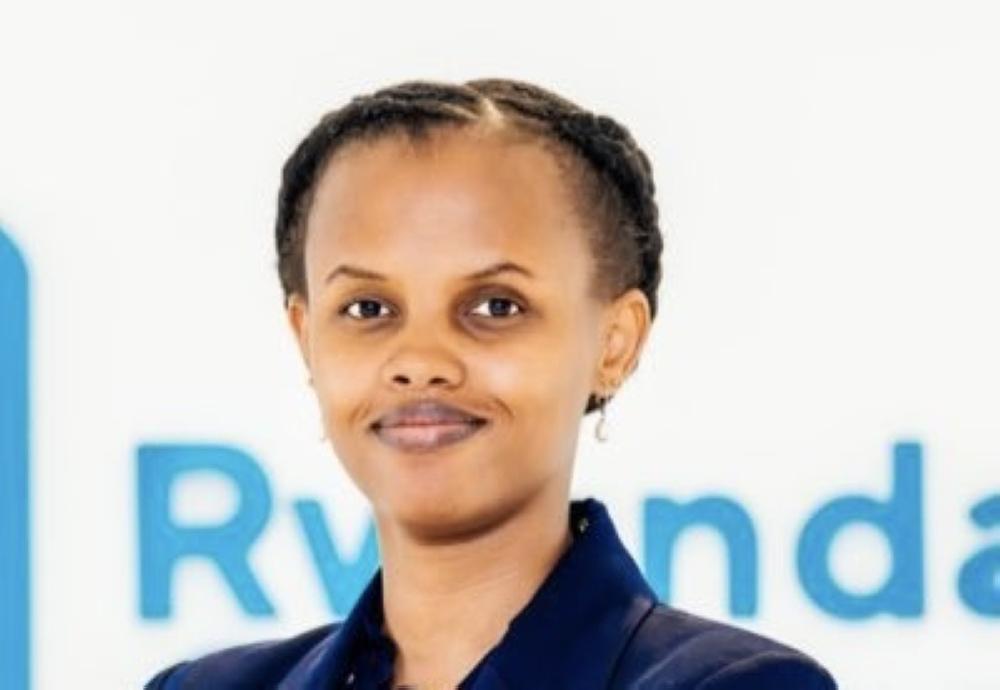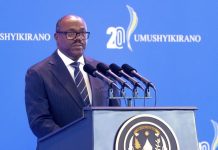Africa-Press – Rwanda. Since 2018, digital solutions developed or implemented in Rwanda that respond to governance and development challenges have been imported to Chad, Eswatini, Guinea, and Kenya.
Their model blends technology, culture, diplomacy, and sustainability, as explained by Patricie Uwase, Chief Executive Officer of Rwanda Cooperation Initiative (RCI).
“In Chad, the Electronic Billing Machine (EBM) has already boosted domestic revenue collection, while a customized Integrated Financial Management Information System (IFMIS) aligned with Chad’s legal framework and World Bank standards is expected to improve transparency and accountability,” she said.
Uwase explained that in Eswatini, the Umsebe IFMIS, now at rollout stage, has been co-designed by Team Rwanda and Team Eswatini, a deliberate choice to ensure ownership and adaptation to local realities.
She also updated that Guinea is preparing to launch its e-procurement system, which is nearing completion, and in Kenya, Rwandan digital expertise is being used to support the country’s broader national transformation agenda.
Uwase underlines that the secret to the success of these exports lies in how they are conceived.
“These digital projects are culture-centered in design, built through co-design approaches, strengthened by the integration of technology and diplomacy, and guided by a strong commitment to results,” she said.
She further explained that Rwanda always encourages partner countries to integrate culture within digital systems for long-term sustainability.
“For example, Eswatini’s IFMIS is named Umsebe, meaning ‘Sunrise,’ reflecting local identity. Rwanda does not prescribe solutions; instead, we co-plan, co-design, code, and roll out systems together with our partners. This builds ownership and ensures long-term sustainability,” she added.
Beyond systems design, Rwanda insists that cooperation must be a two-way knowledge exchange rather than a one-sided transfer.
Rwanda Cooperation Initiative applies this principle through the organisation of study visits, participatory and trainee-centered training methods, policy advisory that merges local lessons with partner country best practices, and joint steering committees that oversee digital rollouts.
Uwase further noted that the government is reviewing its 2021–2026 strategic plan and conducting an impact assessment to capture measurable results, whereby findings will inform the next plan, which will prioritize scaling up the most impactful and sustainable practices.
“Our teams combine technical excellence with diplomatic skills, guided by Rwanda’s economic diplomacy strategy. This approach strengthens partnerships while delivering solutions,” Uwase said.
South-South cooperation
She added that knowledge sharing is not only an operational choice but also a cornerstone of Rwanda’s foreign policy.
The official informed that the country shares proven practices in areas such as the digital economy, gender equality, public finance management, green growth, climate resilience, and reconciliation.
“Many countries in the Global South aim to become knowledge-based economies, and Rwanda’s tested solutions provide concrete pathways to achieve this,” she said.
She noted that since 2018, Rwanda has deployed several digital projects abroad, signed over 18 memoranda of understanding with foreign governments, and welcomed more than 7,600 visitors from 70 countries to learn from its home-grown experience.
“These countries visited our country to learn from and share experiences, particularly in our home-grown and digital solutions that have proven effective in addressing development challenges,” she stated.
The country facilitates exchanges via experiential study visits, boardroom and field-based training, export of digital and home-grown solutions, and evidence-based advisory to states and non-state actors.
She added that international study visits expose visitors not only to Rwanda’s systems but also to its culture, history, and clean environment. For example, delegations often seek to replicate practices such as Umuganda, the monthly community work, while commending Rwanda’s advances in gender equality and leadership.
Uwase concluded that exported digital projects are doing more than solving technical challenges abroad; they are accelerating national digital transformation strategies, aligning with the African Union’s Digital Transformation Strategy for Africa (2020–2030), and helping to bridge the global digital divide.
For More News And Analysis About Rwanda Follow Africa-Press






